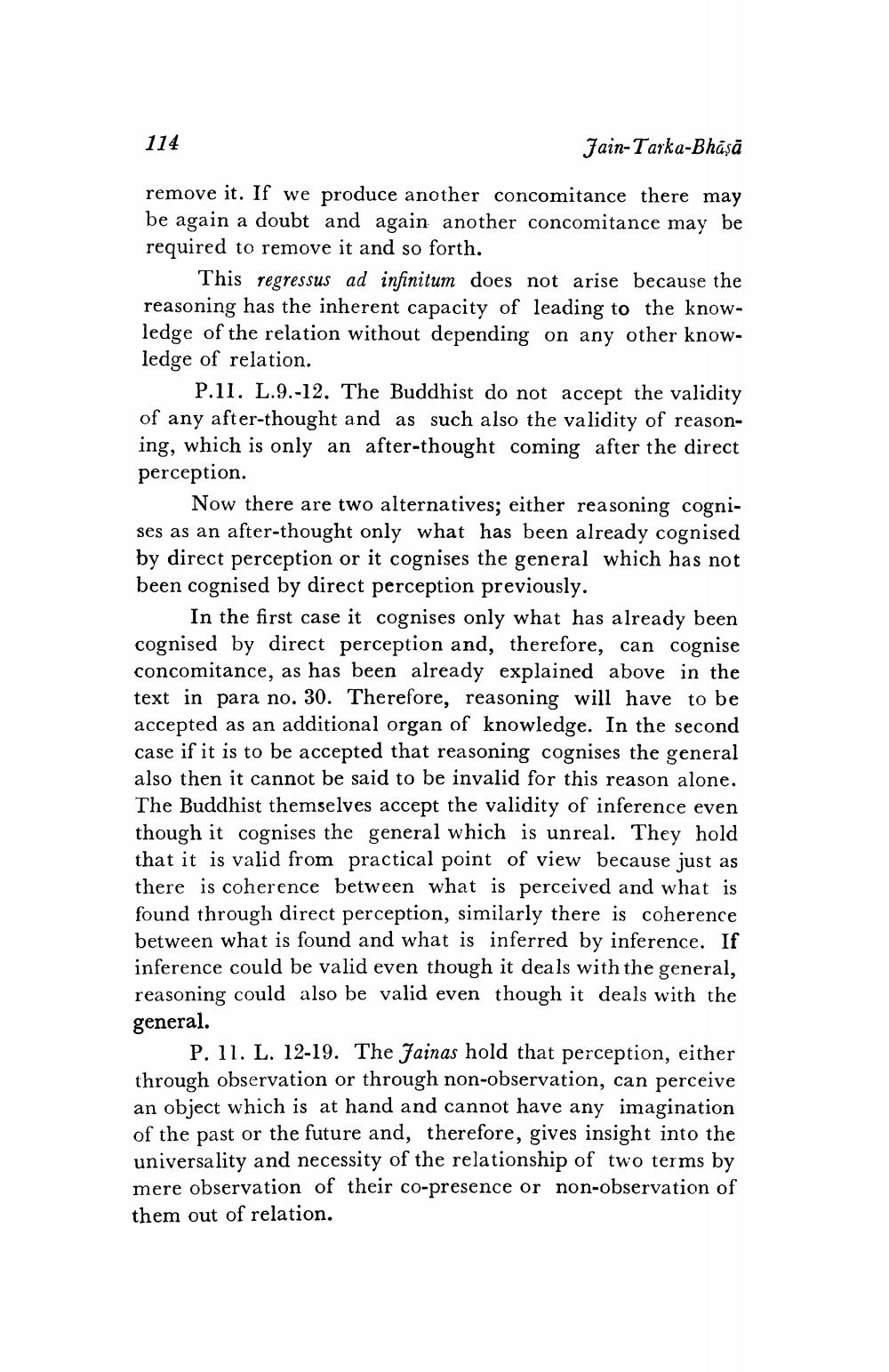________________
114
Jain-Tarka-Bhasā
remove it. If we produce another concomitance there may be again a doubt and again another concomitance may be required to remove it and so forth.
This regressus ad infinitum does not arise because the reasoning has the inherent capacity of leading to the knowledge of the relation without depending on any other knowledge of relation.
P.11. L.9.-12. The Buddhist do not accept the validity of any after-thought and as such also the validity of reasoning, which is only an after-thought coming after the direct perception.
Now there are two alternatives; either reasoning cognises as an after-thought only what has been already cognised by direct perception or it cognises the general which has not been cognised by direct perception previously.
In the first case it cognises only what has already been cognised by direct perception and, therefore, can cognise concomitance, as has been already explained above in the text in para no. 30. Therefore, reasoning will have to be accepted as an additional organ of knowledge. In the second case if it is to be accepted that reasoning cognises the general also then it cannot be said to be invalid for this reason alone. The Buddhist themselves accept the validity of inference even though it cognises the general which is unreal. They hold that it is valid from practical point of view because just as there is coherence between what is perceived and what is found through direct perception, similarly there is coherence between what is found and what is inferred by inference. If inference could be valid even though it deals with the general, reasoning could also be valid even though it deals with the general.
P. 11. L. 12-19. The Jainas hold that perception, either through observation or through non-observation, can perceive an object which is at hand and cannot have any imagination of the past or the future and, therefore, gives insight into the universality and necessity of the relationship of two terms by mere observation of their co-presence or non-observation of them out of relation.




